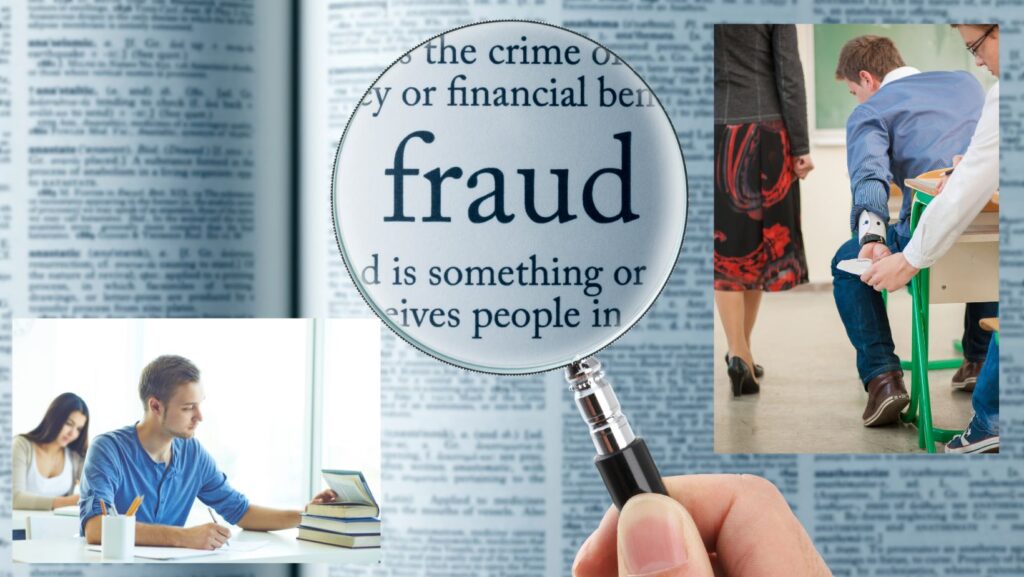Inside the Enigma of Academic Dishonesty: What, Why, and How You Can Prevent It

Academic Dishonesty is a serious problem that affects students, educators, and society. Welcome inside the Enigma of Academic Dishonesty. We will explore what constitutes academic dishonesty, why it persists, how it affects, and how to prevent and address it. Academic dishonesty is a serious problem that affects students, educators, and society.
Any act of deception or fraud that violates the academic rules and standards of an educational institution is academic dishonesty. It undermines the integrity and quality of education and erodes the trust and respect for the academic community.

What Constitutes Academic Dishonesty?
Academic dishonesty can take many forms and involve different behaviors. Some of the common types are:
- Plagiarism: Copying or using someone else’s words, ideas, or work without proper citation or acknowledgment.
- Cheating: Using unauthorized or dishonest means to gain an unfair advantage in an academic task, such as exams, assignments, or projects.
- Fabrication: Making up or falsifying data, information, or sources to support one’s claims or arguments.
- Collusion: Working with others without permission or authorization to complete an academic task.
- Unauthorized assistance: Receiving or giving help from others that is not allowed or approved by the instructor or the institution.
Some real-life examples of academic dishonesty cases are:
- In 2014, a group of students at Duke University used a group chat app to share answers and solutions for a statistics course. The instructor discovered the cheating scheme and reported it to the university’s honor council.
- In 2016, a former Stanford University student admitted to creating a fake transcript and recommendation letters to gain admission to Yale Law School. The student also fabricated his academic achievements and awards on his resume and online profiles.
Why Academic Dishonesty Persists?
Academic dishonesty persists for various reasons:
- Pressure to succeed and high-stakes competition: Many students feel pressured to achieve high grades and academic honors to meet their or others’ expectations. They may also face intense competition from their peers or other applicants for scholarships, admissions, or jobs. These factors may motivate them to cheat or plagiarize to gain an edge or avoid failure.
- Lack of understanding of academic integrity’s importance: Some students may not fully understand what academic integrity means and why it matters. They may not realize the ethical implications and consequences of their actions. They may also have misconceptions about what constitutes academic dishonesty and how to avoid it.
- Technology and its influence on cheating: Technology has made it easier for students to access and share information online. It has also created new opportunities and challenges for cheating and plagiarism. Some students may use technology to find or create shortcuts, such as the use of online essay mills, paraphrasing tools, or cheating apps.
The Impact of Academic Dishonesty:
Academic dishonesty has damaging effects on students, educational institutions, and society. Those effects are:
- Effect on students: Academic dishonesty hinders students’ ethical development and learning retention. It prevents them from developing critical thinking, problem-solving, and research skills. It also creates a knowledge gap that may affect their future academic or professional performance. It exposes students to various risks, such as disciplinary actions, legal consequences, academic probation, expulsion, or revocation of degrees.
- Effect on educational institutions: Academic dishonesty damages the integrity and reputation of educational institutions. It lowers the academic standards and quality of education. It also undermines the credibility and value of the degrees and credentials awarded by the institutions. It affects the morale and trust among faculty members and students.
- Societal implications: Academic dishonesty weakens the trust in education as a source of knowledge and truth. It also compromises the integrity of the future workforce and leaders. It may lead to unethical practices and behaviors in various fields and professions that harm individuals, organizations, or society.
How to Prevent and Address it?
This can be prevented by:
- Promoting a culture of academic integrity: Educational institutions should establish clear policies and expectations regarding academic honesty and integrity. They should also foster a positive learning environment that values honesty, respect, responsibility, fairness, and excellence.
- Educating students and faculty about it: Educational institutions should provide orientation programs, workshops, seminars, or courses that educate students and faculty about what constitutes it and how to avoid it. They should also provide guidance and resources on how to cite and reference sources properly and the use of technology.
- Implementing effective anti-plagiarism and cheating detection tools: Educational institutions should use reliable and updated software or tools that can detect and prevent plagiarism and cheating in academic tasks. They need to supervise and inspect the academic records and activities of students and faculty.
- Developing consequences and disciplinary measures: Educational institutions should enforce consistent and fair consequences and measures for academic dishonesty cases. They should also provide support and counseling for students and faculty involved in or affected by it.
- Encouraging reporting and whistleblowing: Educational institutions should encourage students and faculty to report or whistleblow any suspected or witnessed cases of academic dishonesty. They should also protect the rights and privacy of the reporters or whistleblowers and ensure they don’t retaliate against them.
Academic dishonesty is a complex and diverse phenomenon that undermines the quality and credibility of education. It has various causes, consequences, and forms, and it requires a comprehensive and collaborative approach to prevent and address it. Students, teachers, institutions, and society all have a role and responsibility in fostering a culture of academic honesty.
Also Read: What Does Academic Probation Mean in College? It’s Impact on it
